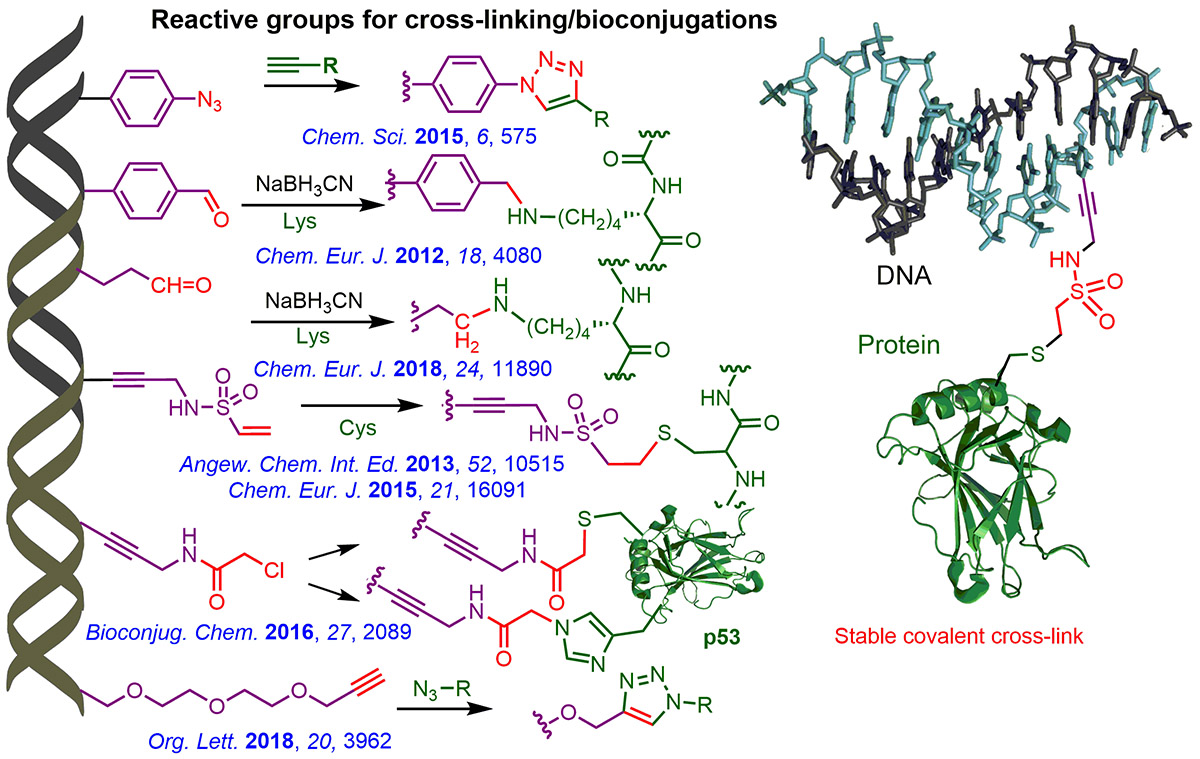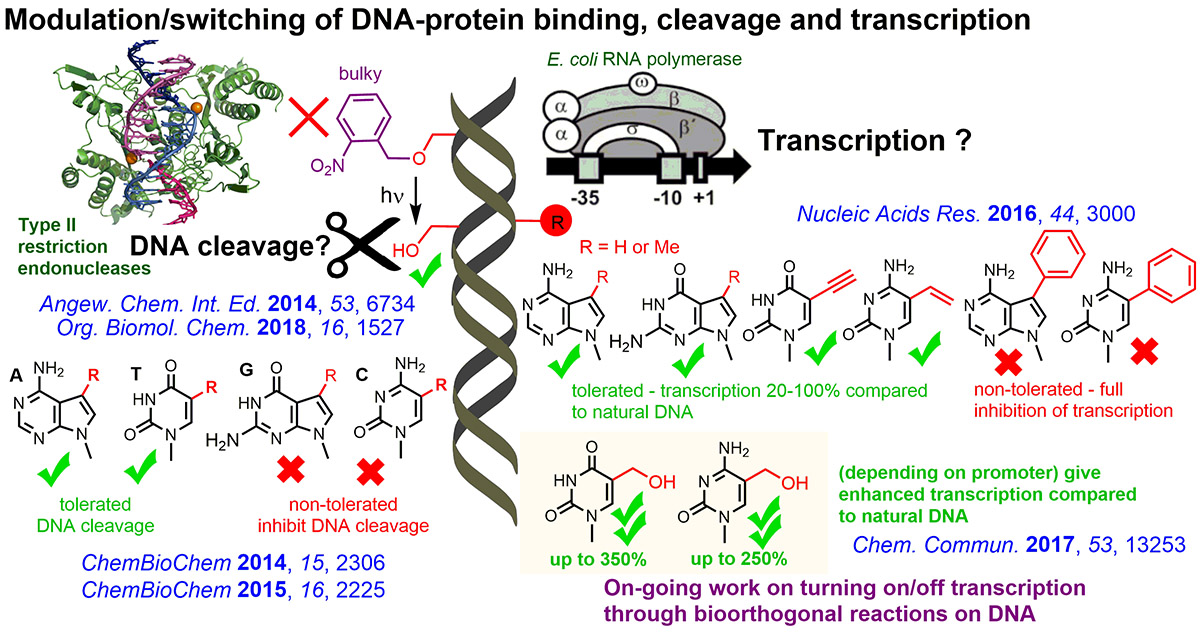Chemical biology of base-modified nucleic acids
The second area of applications of base-modified nucleic acids is chemical biology. In particular, we are interested in applications of modified DNA in studying or modulation of protein-DNA interactions. We developed novel nucleotides and DNA bearing diverse reactive groups specific for cross-linking with certain amino acid side-chains (Michael acceptors, alkylation agents etc.) which have been applied in cross-linking to DNA-binding proteins and for other post-synthetic modifications of DNA.

One of the most challenging projects of our group involves the development of bioorthogonal reactions on DNA to regulate DNA-protein binding and related biological processes. Previously, we studied the influence of major-groove modifications on cleavage of DNA by type II restriction endonucleases (RE) and found that some small modifications are allowed on A or T but not on G and C. Later we developed DNA photocaging and deprotection to switch off and on the RE cleavage. Recently, we studied transcription with modified DNA templates and found that some modifications are allowed (transcription proceeds to 20-100%). The presence of 5-hmU and 5-hmC in the template can even enhance the transcription up to 350% or 250%. Currently we are working on bioorthogonal reactions on DNA to turn on and off transcription in collaboration with the group of Dr. Libor Krásný (IMB Prague).


